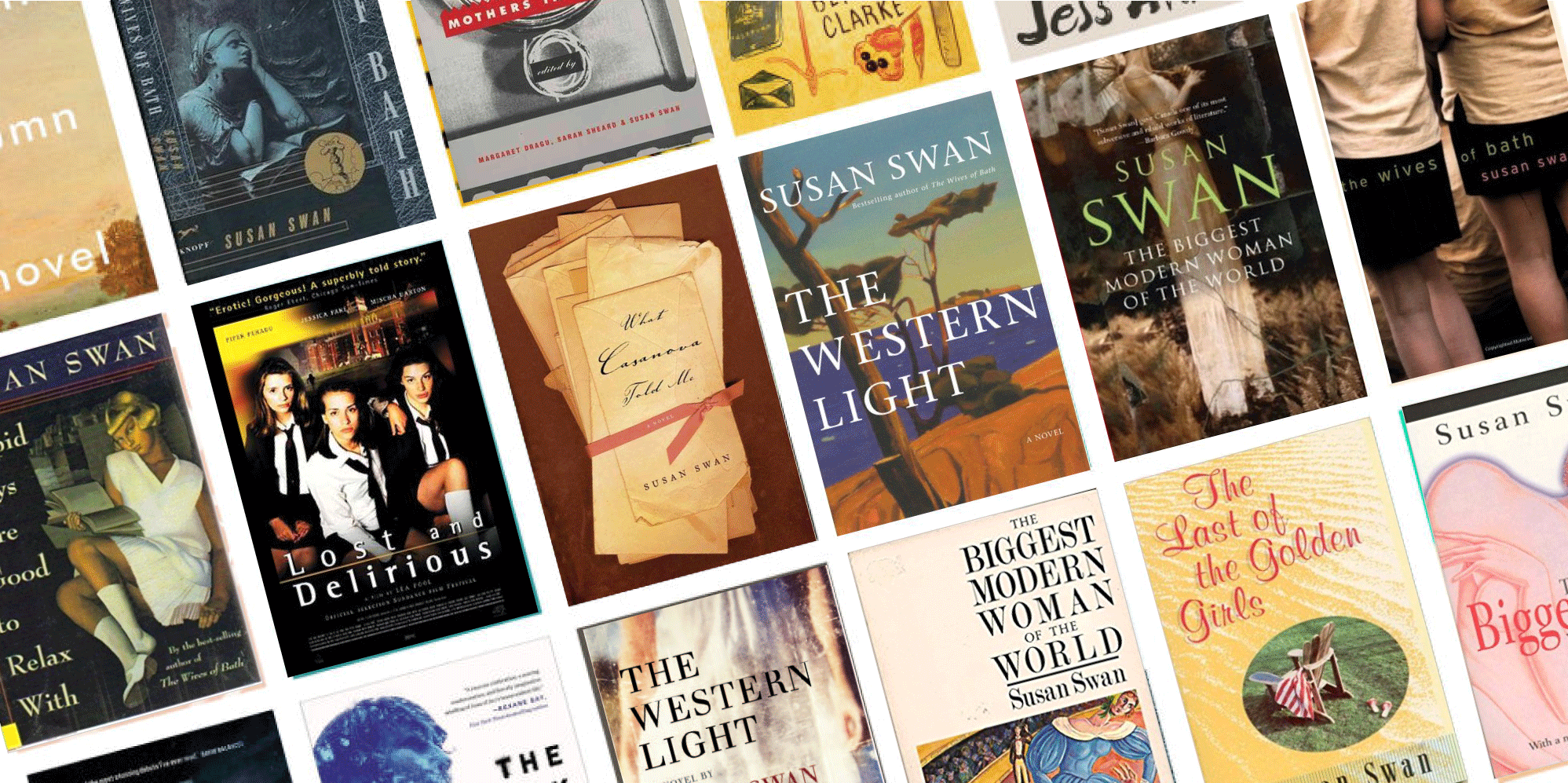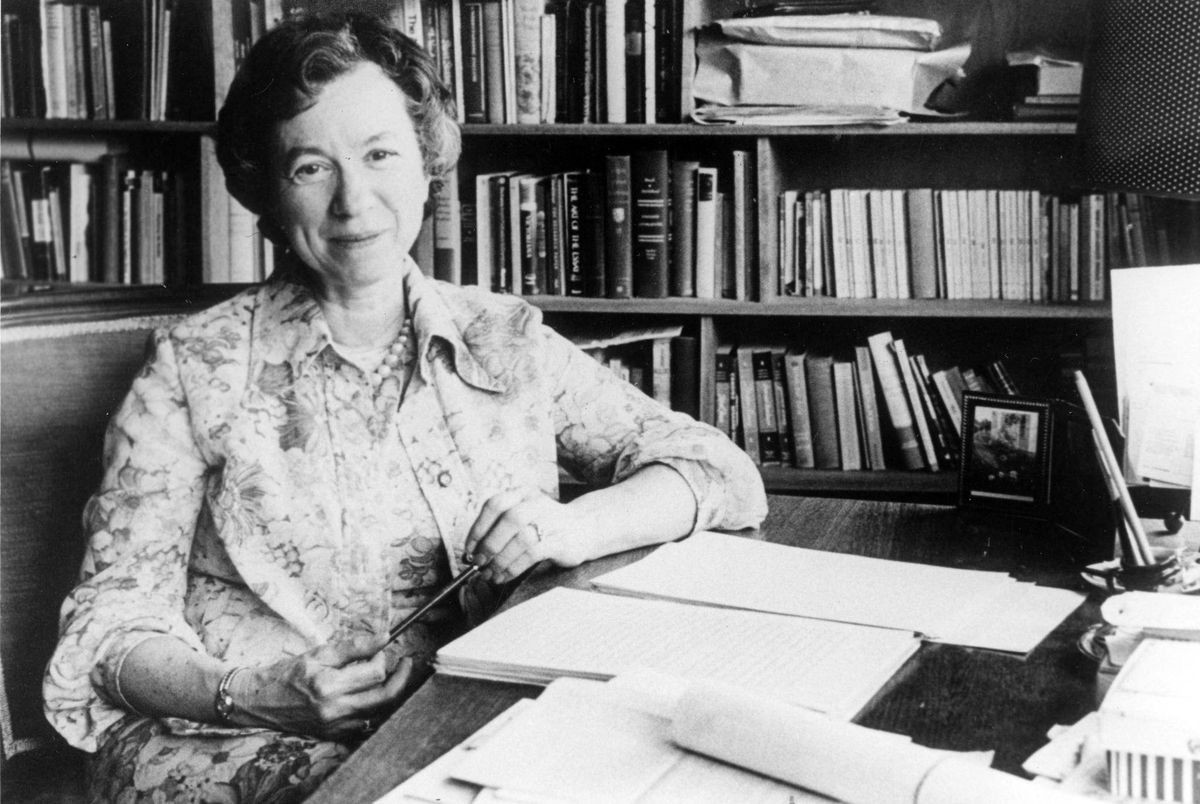Meet The Lizard Man
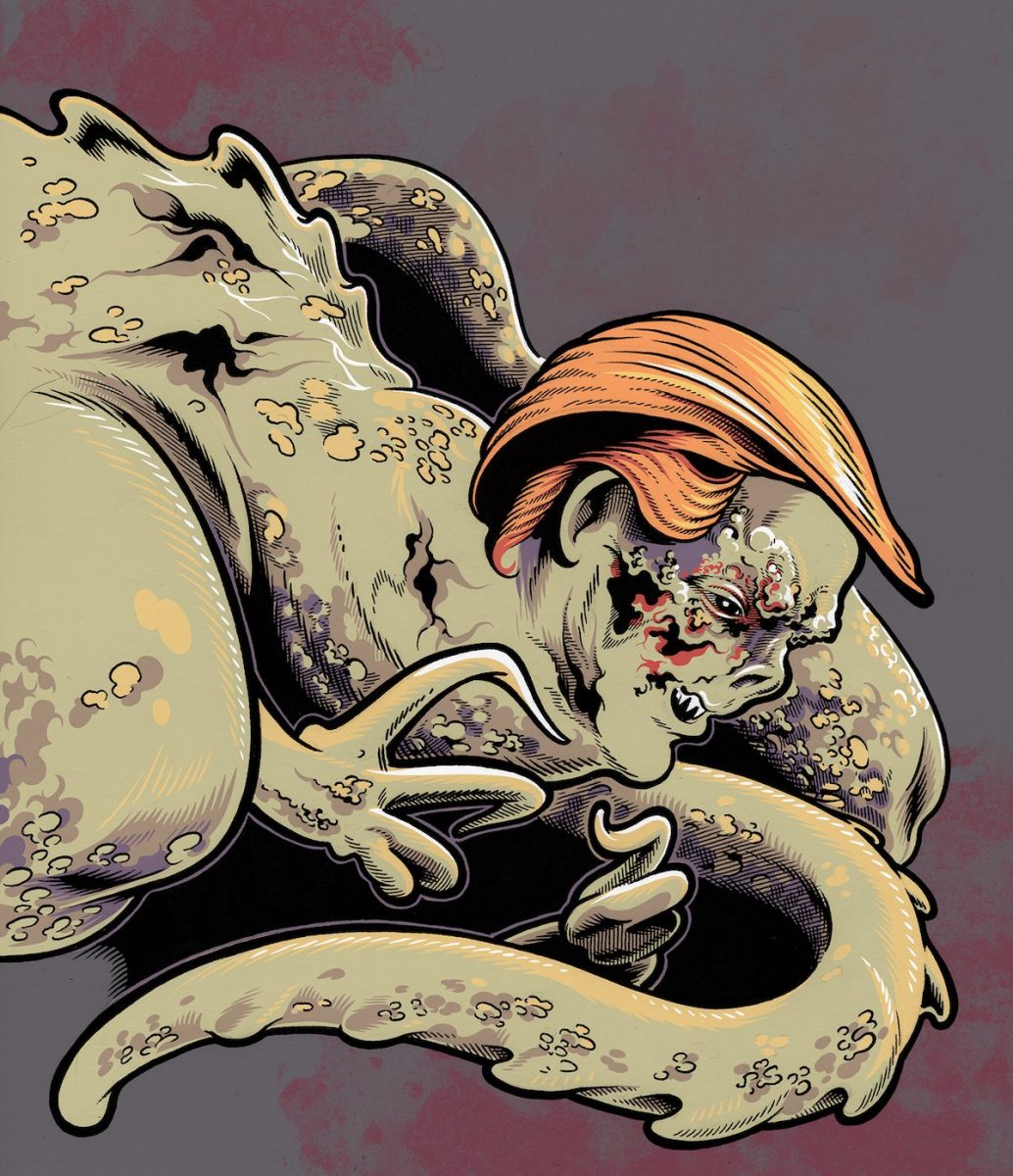
No matter what he says, he believes what he says when he says it

An Unpublished Short Story from The Dead Celebrities Club.
Originally Published in Now Magazine, November 26, 2019.
He was called lizard man at school but he didn’t let it bother him. He isn’t really scaly. The look of his skin is closer to a mild case of psoriasis. Red, blotchy – sometimes inflamed. Definitely not scales, although he knows some lizards don’t have scales as such. They have leathery skin, and a leathery sensation is what you would feel if you touched him intimately.
Above the neck he is normal, more or less – aside from the bulb at the base of his throat that he prefers not to mention. He wears shirts buttoned up to his neck so it’s covered over. The other part of him, the nether part, is bound up tightly against his back. It hurts when he sits in a chair but not always. Some days the tissue is softer than others. He has learned to live with that fact.
He gets angry if anyone mentions the bulge under the back of his suit jacket. “So I have put on a few pounds,” he snaps. “What’s your problem?” It’s not the only bit of him that is tucked up. He’s a tucked-up kind of guy. Nothing wrong with that, although he is older now, and horrible things could be happening to his insides.
His ticker, for instance. He scoffed when his doctor told him to take it easy with the campaigning. He never phones it in. That’s his genius. No matter what he says, he believes what he says when he says it. A real liar doesn’t believe his lies, right?
He will give it his best shot today although his handlers want him to wear a body shield that fits over him like a plastic bubble. Who the fuck do they think he is? Darth Vader? The body shield with its metal mouthpiece is going to make him look weak. But they insist. They say there have been bomb threats, and worse.
There will also be security drones flying around the ones with gizmos like radar that help them dodge obstacles.
It will be hot inside the plastic dome. He sweated like crazy when he tried it on. And his sweat stung because his skin is so dry. His condition is worse. His condition. Is it something in the water? Now there are more and more people like him. Mostly men, of course, although he isn’t sure why he added “of course.” A subliminal prejudice against his gender, maybe.
People mimic his mannerisms, even his posture. There’s no mistaking his ability to attract women and intimidate his rivals. It took him years to develop the display structures that befit a man like himself.
He heads for the stage, moving from side to side in characteristic fashion. His slender, dignified wife smiles encouragingly. She advised him to obey his handlers and wear the plastic body shield. So he’s doing it for her. Staying safe so she feels safe.
The crowd’s eager voices, their flailing arms fill him with satisfaction. This is a righteous thing. Enjoying the admiration of thousands, the way he basks in the afternoon sun at his oceanfront retreat. Free from prying eyes, he sprawls in a lounger, sliding his tongue in and out, savouring the salty breeze.
Will there be air in that goddamn thing? He doesn’t want to suffocate. When he reaches the stage, he jokes that his handlers are turning him into a Russian babushka doll. The crowd roars with pleasure. They’re an easy laugh.
But not all of them are laughing. Some goofs in the row behind his wife are scowling. He flicks his tongue at them once, twice. Then he hitches up his pants and stands like an American war hero as his handlers lower the thing over his head. He thinks he hears frightened shrieks although he can’t hear as well as other people. He looks out through the klieg lights, trying to see what is making them crazy.
There is nothing to fear. He has command of the room. He takes several good sniffs inside his dome. The air tastes slightly bitter, like the kale smoothies his wife makes. It’s all good. He is safe and sound inside his full-body shield.
He feels as dangerous as a Komodo dragon. He loves their ugly snouts, beaded with shiny scales. Above his head, hundreds of security drones are gliding back and forth. They are protecting him. Nobody can hurt him now. He says hello to the crowd through his mouthpiece.
His fans shout back but something is wrong. The drones have convulsed in a ball around him, and he is falling backward against the plastic shield, his jaws oozing a weird greenish froth. The security guards lift off the plastic dome and he crumples to the floor. He hears a ripping sound as his dewlap bursts through his collar. There’s a light pulsing in his fracture planes, followed by a louder ripping noise, and a sudden weightless sensation at the back of him. He smiles sheepishly. A writhing snake-like object lies twitching on the stage. The crowd utters a horrified cry while the thing jerks and quivers in a puddle of body fluids.
It is what it is, he thinks, as the voices in the crowd grow fainter and fainter until the noise sounds far off, like the distant thunder of surf on the Florida shore.
Susan Swan is a Toronto-based writer. Her latest novel is The Dead Celebrities Club.
Literary Review Of Canada: Double Or Nothing
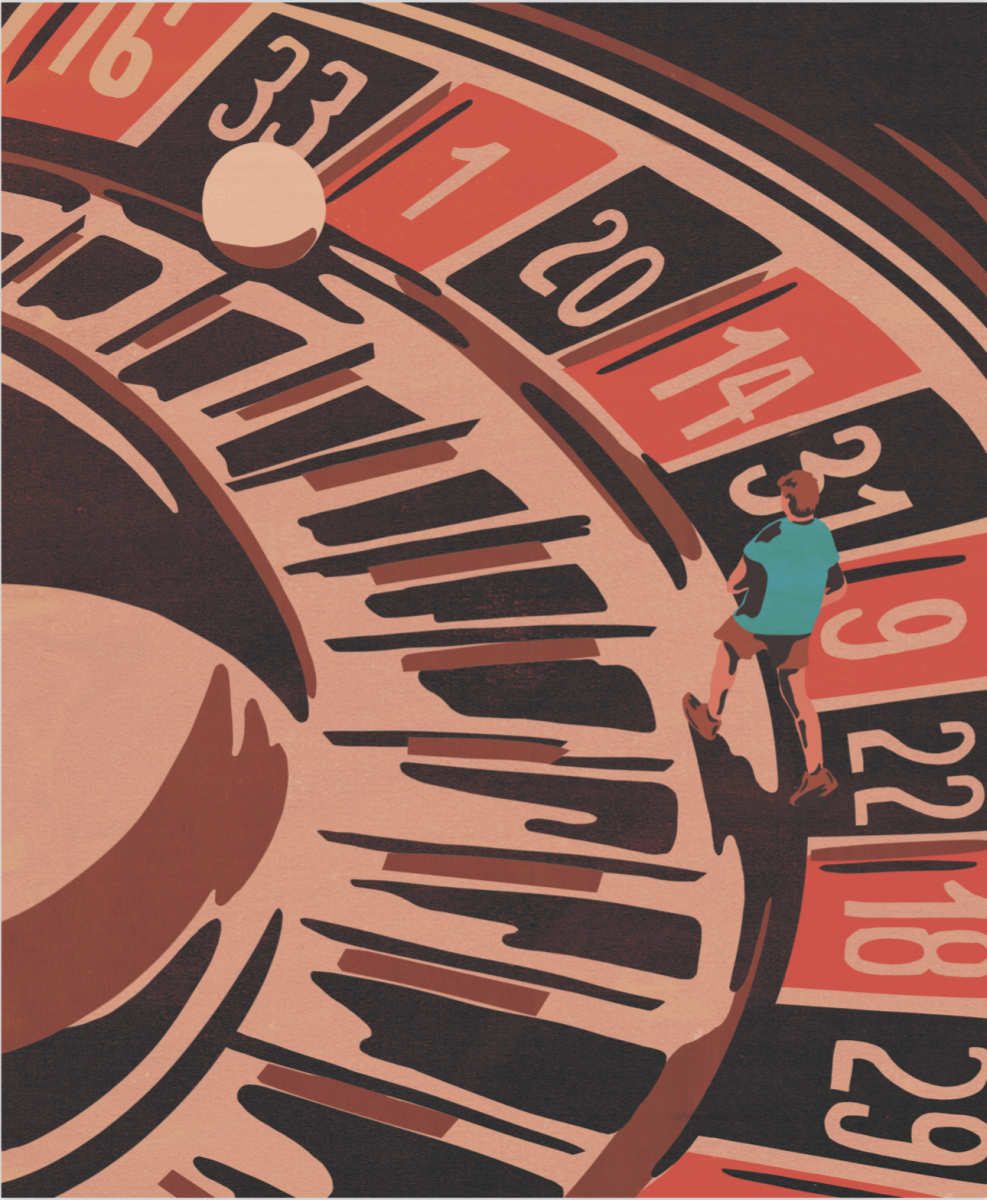
The Literary Review of Canada wrote an article about my new novel, The Dead Celebrities Club, and it’s deconstruction of the marketed, monetary value first language and society we have developed in the 21st century. Examining the way Stéphane Larue and I look at financial characters and stories, the article talks about how our novels look at the human capital versus human character question in the modern world.
To read the article, follow this link:
Writers & Fraudsters: We Dream Big and We Believe Our Lies
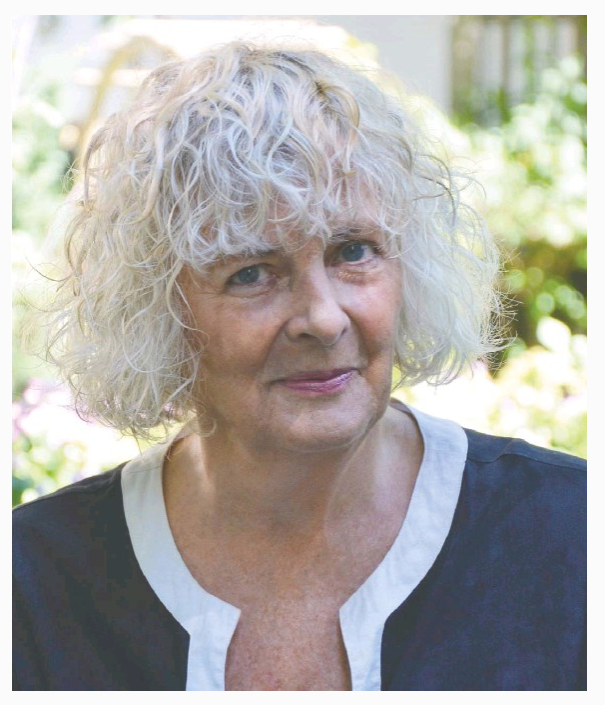
Post Media Columnist Praises The Dead Celebrities Club:



To read an excerpt from the novel,
Click Here.
Read An Excerpt
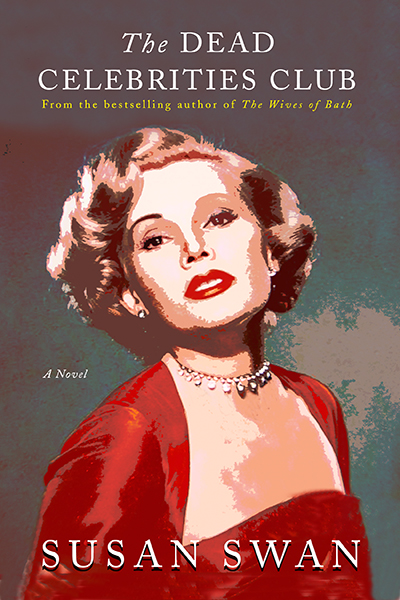
Off to Jail Excerpt: The Dead Celebrities Club
Anxiously, I follow the C.O. into a room the size of my walk-in closet in the Receiving and Discharging Building. I have purposefully worn an old, double-breasted suit, and when the C.O. asks if he should mail my clothes home, I suggest he burn them. The man doesn’t crack a smile. Instead he asks me to undress and then he searches my orifices; his latex-sheathed fingers inside my rectum feel thick and unpleasantly warm.
I receive the standard prison issue: two large-sized khaki uniforms called “browns,” two blankets, two sheets, and a pillow. I am also given undershirts, socks, and undergarments. I can buy sweat pants at the commissary shop. Then the guard marches me out into the yard and leaves me standing dizzy and frightened like a prison mole blinking up at the light.
Unfortunately, the dope has left me feeling light-headed. If you aren’t subject to spells of dizziness, it’s hard to fathom a sensation akin to a window opening behind your eyes, a porthole that lets in air where coil upon coil of your brain matter should be. As soon as my dizziness kicks in, my heart begins beating too quickly. The sinus node, the body’s natural pacemaker, is sending the wrong electrical impulses through the right
atrium, increasing my heart rate. Because I make a crash when I fall, because a large falling man changes the environment no matter how much I might wish otherwise, because I will end up a creature of ridicule, I have no interest in fainting on my first day in my new home.
The tang of male sweat drifts my way. I force myself to turn around. Nothing anyone has said prepared me for the sight in the prison yard. I may as well have stepped into a scene from the television show Oz. Most of the ne’er-do-wells are black or Latino, while the beefy guards are white-skinned, and they all stand waiting for me to play my role in the tawdry prison melodrama to which I’ve been consigned against my will.
Over by the gate, an imposing black man wearing a Vandyke is heading
my way followed by three guards who are each restraining a German shepherd. The man’s closely shaved head rests like a black bowling ball on his shoulders. As he comes closer, I see he is wearing rimless glasses and a dark business suit. His stiff military bearing and the way the other men look at him suggest I am about to meet the warden.
Nathan Rickard, the warden says, extending his hand. The tremor in his voice suggests my presence is having an impact. Celebrity has a habit of doing that, although you could chop up my Midas-like traits, along with the traits of other celebrities, and feed the parts into a blender and out would come some variation of a well-known financier and nobody would notice the difference. I was once mistaken for Wolf Kruger, the head of the securities commission. Wolf and I don’t even look alike. Yet there is something there—a grave facial expression—a knowing gleam in the eye. The gold dust of celebrity does the rest.
Behind the warden, some of the prisoners are clapping and calling my name while others are yelling the same insults the journalists had used earlier: Fraudster! Crook! You get the gist. The warden ignores the men and steers me forward, his large dark eyes behind the lens of his glasses darting warily around the yard. We have almost reached the prison buildings when three men step into our path. Is one of the miscreants about to stick me with a knife? They could be bubble-wrapped for all the good my ability to read my fellow humans does me this morning. While I try to quiet the arterial flutters of my heart, one of the scofflaws shouts, Make us rich, Dale Paul!
With your money and my ideas, we’ll go far! I execute a mock bow.
The scofflaws call out enthusiastic hurrahs. The German shepherds begin to bark, standing on their hind legs, straining against their leashes; the guards appear to be marshalling all their strength to keep the dogs under control. A whistle shrills; the dogs drop to all fours, stop barking, and the cries die away. By the time the warden and I reach my dormitory, the place has assumed a churchy quiet.
If you figure out how to make money in here, let me know. The warden smiles an odd, secretive smile.
You have my word, good sir, I reply.
Heck, you sound just like you do on television. He chuckles.
He doesn’t realize I am serious. In the parking lot this morning, while my friend Nugent stood chatting with the guard, the idea of betting on the death of aging celebrities popped into my befuddled brain like the ping of an email dropping into my inbox. To qualify, you must be in the news and about to die.
Can you see where I’m going with this? Well, all in good time.
To read about the writing process for this novel,
Click Here.
Can someone like Dale Paul be forgiven?
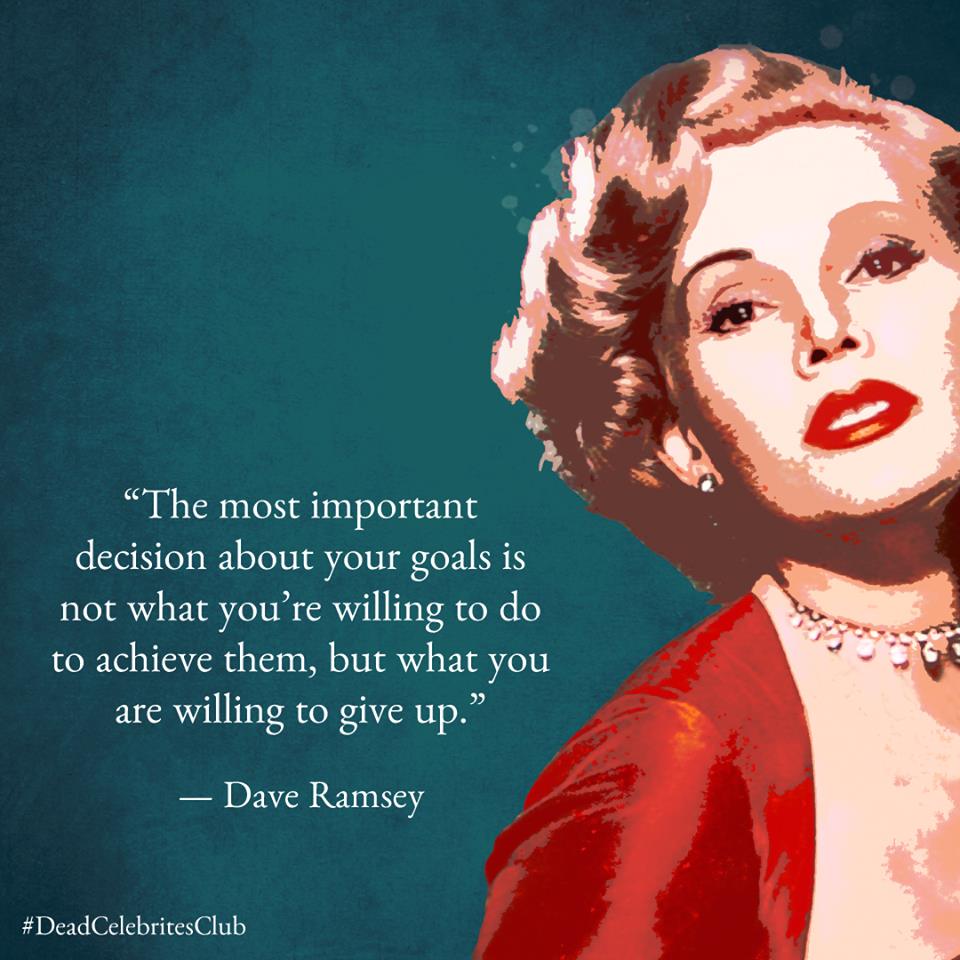
In Susan Swan’s new novel, The Dead Celebrities Club, Dale Paul isn’t just looking for legal redemption but also forgiveness from those he claims to love. So we asked – Can someone convicted of financial crimes be redeemed?
Thank you to our video participants!
Cher Jones Cher Jones Social Media Trainer
Stephen Thomas Halo Advisory
Francina Grazette Necesse Naturals
Zoe Share Schmooz
Kevin Huhn
Alan Gruda
Could you be like Dale Paul?
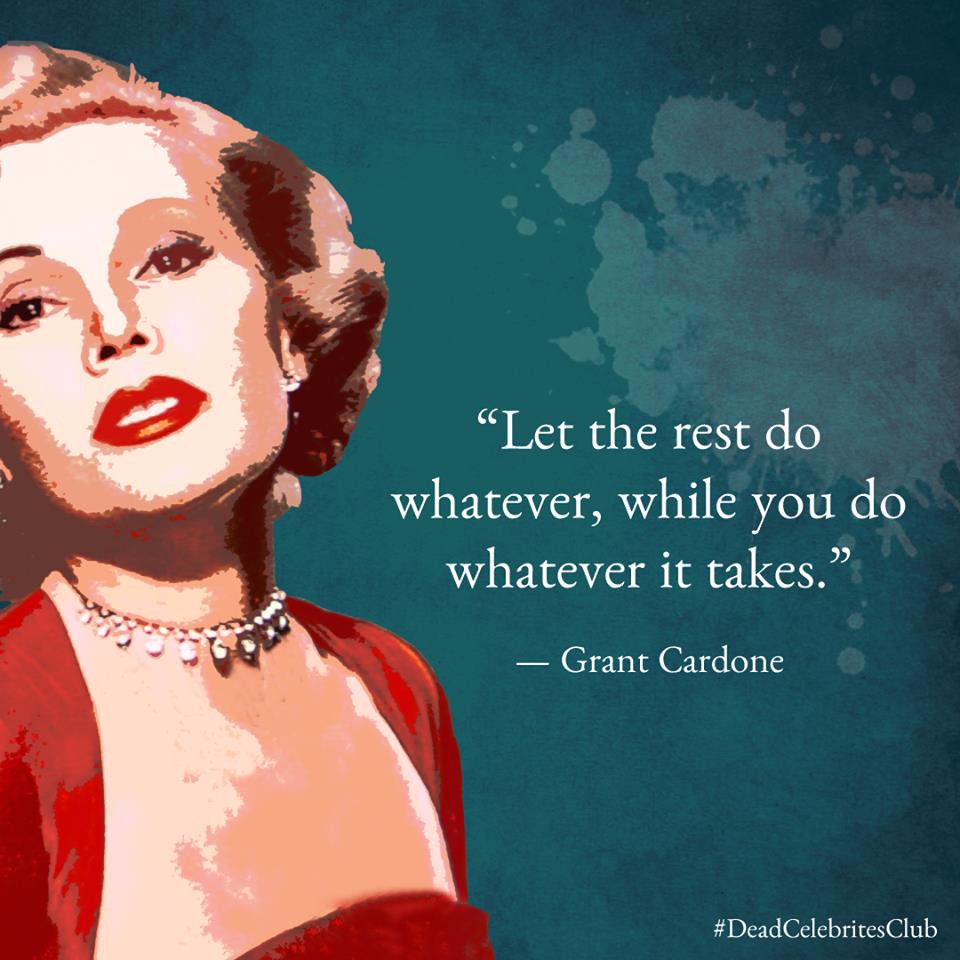
Susan Swan’s new novel, The Dead Celebrities Club, chronicles a Toronto-born financial tycoon’s imprisonment for fraud and shows the lengths people go to for paydays. So we asked – Do you think most people would throw someone under the bus for $1 million dollars?
Thank you to our video participants!
Cher Jones Cher Jones Social Media Trainer
Stephen Thomas Halo Advisory
Kevin Huhn Kevin Huhn – Business Growth Strategist, Results Coach
Zoe Share Schmooz
and Alan Gruda, Be Your Best Today


